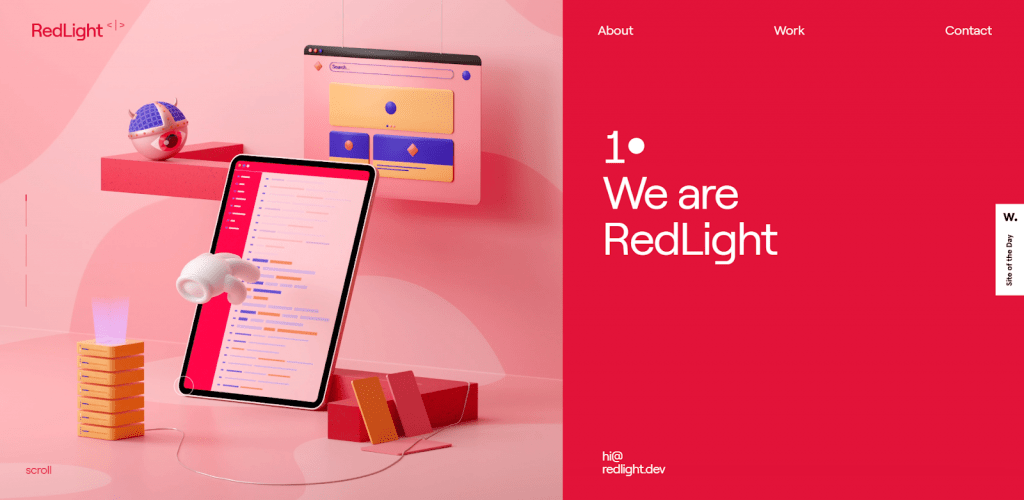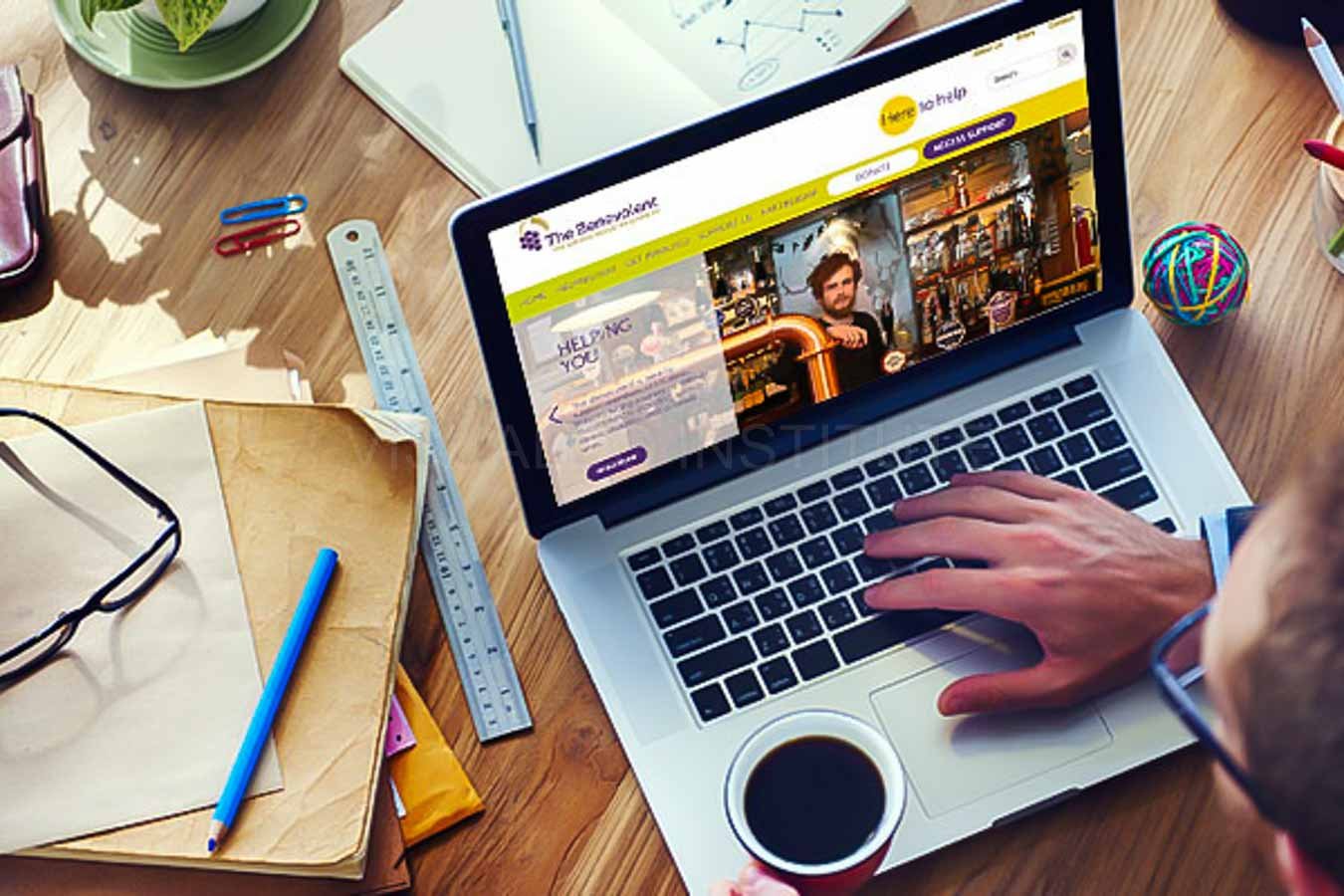Web Design London Ontario Services Tailored to Your Company
How to Efficiently Integrate Aesthetics and Functionality in Website Design
When designing a web site, you require to strike an equilibrium between appearances and performance. It's not almost looking good; your design should likewise offer an objective and guide users successfully. By concentrating on simplicity and intuitive navigation, you can create an appealing experience. However what aspects genuinely boost use while keeping aesthetic charm? Let's check out the essential principles that can result in a harmonious blend of appeal and feature.
Recognizing the Relevance of Looks and Functionality
When you create an internet site, understanding the balance in between appearances and functionality is vital for producing a reliable user experience. A visually enticing website grabs interest, but it's the functionality that maintains customers involved. If your site looks excellent yet is hard to browse, visitors will swiftly weary and leave.Consider your target audience and what draws them in. You want to develop a style that reflects your brand name while guaranteeing ease of usage. Streamlined layouts, instinctive navigating, and clear contact us to activity can boost both aesthetics and functionality.

Concepts of Efficient Internet Design
To develop an efficient website design, you require to follow several vital principles that boost both individual experience and visual allure. First, prioritize simplicity; a clean format assists individuals browse quickly. Make use of a consistent color pattern and typography to preserve coherence across your site. This cultivates knowledge and trust.Next, guarantee your layout is receptive. Users access websites on various gadgets, so your style should adjust seamlessly. Focus on aesthetic power structure; highlight crucial elements with dimension, shade, or positioning to assist customers' focus.Finally, incorporate adequate white room. It prevents clutter and makes material a lot more absorbable. Remember, efficient internet design balances aesthetics and performance, so every layout selection ought to serve a function. By adhering to these concepts, you'll develop a website that's not just aesthetically appealing but also easy to use, eventually maintaining visitors engaged and motivating them to return.
Prioritizing Individual Experience
When prioritizing user experience, you'll want to start by understanding what your customers really need. Simplifying navigating layout can make a huge difference in just how conveniently they locate what they're seeking. Additionally, boosting visual hierarchy helps guide their attention to one of the most vital components on your site.
Recognizing Customer Demands
Understanding individual needs is important for developing an engaging internet experience that keeps site visitors coming back. To attain this, you should recognize the goals and choices of your target audience. Beginning by carrying out user study, like studies or interviews, to collect insights on what customers value most. Take note of their pain factors and difficulties when interacting with comparable websites. This details permits you to tailor your style, ensuring performance lines up with customer expectations. Furthermore, think about creating individual characters that represent different sections of your target market, aiding you visualize their requirements throughout the layout procedure. When you focus on understanding customer demands, you develop an internet site that not only looks wonderful but likewise provides a seamless, satisfying experience that promotes commitment.
Simplifying Navigation Style

Enhancing Visual Hierarchy
A solid aesthetic pecking order is vital in directing users through your internet site and guaranteeing they engage with key content. To attain this, utilize color, spacing, and size tactically. Make essential elements like headings bigger and bolder than body text, drawing attention instantly. Make use of contrasting shades to highlight phone calls to action, urging clicks. Furthermore, utilize ample white room to different sections, making material digestible and inviting.Consider the circulation of information; arrange components rationally, leading users' eyes from one point to the following. Use aesthetic cues, like arrowheads or lines, to route attention. By focusing on visual power structure, you improve customer experience and boost the likelihood of conversions, guaranteeing your website is both aesthetically pleasing and functionally reliable.
Color Concept and Its Influence On Functionality
While choosing the ideal shades for your site might seem like a small information, it significantly affects usability and individual experience. Shade affects exactly how customers regard info and can boost or hinder navigation. As an example, contrasting shades can aid essential components stand out, making it less complicated for visitors to discover what they need.Additionally, think about the psychology of shades: blue typically motivates count on, while red produces see this website necessity. Understanding your target market can guide your color selections, guaranteeing they resonate well.Moreover, consistent color systems help develop brand name identity, making your web site more remarkable. However, be careful-- a lot of shades can bewilder customers. Stick to a limited palette that complements your content and keeps clarity.Incorporating accessibility is additionally essential; verify your shade mixes get along for those with visual disabilities. By thoughtfully applying shade concept, you'll improve functionality and produce a more engaging customer experience.
Typography: Harmonizing Design and Readability
Shade selections established the phase for your website, however typography plays a similarly necessary duty in boosting customer experience. You desire your message to connect plainly while likewise mirroring your brand name's individuality. Begin by selecting fonts that are not just appealing however also legible. Sans-serif typefaces typically work well for electronic screens, as they're easier to review at different sizes.Maintain a power structure by utilizing different typeface sizes and weights; this overviews individuals via your material easily. Think about line spacing and letter spacing; as well limited can annoy viewers, while as well loosened can disrupt the circulation. Limit your typeface choices to 2 or 3 to keep the design cohesive.Finally, always examine your typography across various gadgets and web browsers. What looks good on one display might not on another. Stabilizing design with readability assurances that your message resonates, maintaining your audience engaged and informed.
Responsive Style: Making Visual Appeals Deal With All Tools
To assure your web site looks fantastic on any kind of gadget, you'll need to accept receptive style concepts. This method warranties your site adapts to different screen sizes, supplying a perfect individual experience. Beginning by using fluid grids and versatile photos that scale flawlessly. Rather than taken care of measurements, select portions and family member systems, permitting your layout to readjust dynamically.Next, implement media queries in your CSS. These allow you use various designs based upon device qualities, like display size. In this manner, you can preserve visual charm while ensuring functionality.Don' t forget touch targets; ensure switches and web links are very easy to touch on smaller sized displays. Prioritize crucial content, so users can easily browse your website no matter their tool. By concentrating on these components, you'll develop an interesting, aesthetically appealing experience that fulfills the demands of all users, whether they're on a desktop computer, tablet computer, or mobile phone.
Carrying Out Functionality Testing for Continuous Renovation
To boost your website design, you need to set clear use objectives that line up with customer requirements. By conducting customer tests, you can gather beneficial feedback on how actual individuals connect with your website. Evaluating these results will assist you make informed renovations and produce a more reliable user experience.
Specifying Functionality Goals
While looks can draw customers in, defining use goals is essential for guaranteeing their experience remains enjoyable and seamless. Beginning by identifying what you desire users to accomplish on your site (website design london Ontario). Consider their behaviors, requirements, and tasks. Are they seeking information, buying, or registering for a newsletter? Develop clear benchmarks to determine success, like job conclusion rates or time on task. Focus on intuitive navigation, obtainable material, and receptive design to boost usability. Consistently review these goals as customer expectations progress. By specifying usability goals, you develop a framework for evaluating and boosting your site's efficiency. This focus on use not only increases customer satisfaction however additionally reinforces the overall efficiency of your layout
Carrying Out User Examinations
Performing user tests is crucial for refining your web site and guaranteeing it meets your audience's demands. Beginning by determining your target customers and developing an examination plan that outlines your objectives. Make use of a mix of qualitative and measurable approaches, such as surveys, meetings, and task-based monitorings, to collect comprehensive feedback. Invite individuals to browse your website while you observe their interactions and note any troubles they run into. Urge open discussion to catch their thoughts and sensations regarding the style and functionality. Keep sessions brief and concentrated, ensuring you cover essential areas without frustrating individuals. Make certain to document all findings, as this details will be important for making enlightened style decisions that boost both appearances and functionality.
Analyzing Examination Results
Just how can you properly assess the outcomes of your functionality examinations to drive constant enhancement? Start by classifying responses into usual styles. Search for patterns in customer habits that highlight pain factors or locations for enhancement. Usage quantitative information, like task conclusion rates and time on job, to measure use fairly. Don't neglect to take into account qualitative understandings from individual comments; they frequently disclose underlying problems that numbers can not reveal. Focus on the most impactful searchings for and develop actionable things for your style team. Bear in mind, it has to do with iterating-- apply modifications, after that test again. This cycle of testing, assessing, and refining helps you equilibrium visual appeals and functionality, guaranteeing your site fulfills user requirements efficiently while maintaining aesthetic allure.
Frequently Asked Questions
Exactly how Do I Select the Right Shade Scheme for My Internet site?
To choose the best color combination for your web site, consider your brand name's individuality, target audience, and emotional effect (website design london Ontario). Use color psychology, produce consistency, and warranty readability. Examination mixes to see what resonates best with visitors
What Equipment Can Assist With Website Design Visual Appeals and Performance?
You can make use of devices like Adobe XD, Figma, and Sketch to enhance your website design's look at this now aesthetic appeals and performance. These platforms provide user-friendly interfaces, collaboration functions, and pre-made layouts to simplify your imaginative procedure and enhance your styles.
How Can I Incorporate Animations Without Endangering Capability?
To include computer animations without jeopardizing performance, prioritize subtle effects that enhance customer experience. Usage CSS computer animations for smoother interactions, assurance quick load times, and examination on numerous tools to preserve efficiency while including aesthetic charm.
What Are Usual Mistakes to Prevent in Website Design Aesthetics?
When developing, stay clear of chaotic layouts, inadequate shade options, and inconsistent font styles. Do not ignore mobile responsiveness, as it can push away customers. Verify your layout lines up with your brand click to find out more name, developing a smooth experience that involves visitors effectively.
How Usually Should I Update My Web site's Design for Optimum Looks?
You ought to upgrade your website's style every 1-2 years to stay up to date with patterns and maintain suitable visual appeals. Routinely restoring visuals helps engage warranties and visitors your website continues to be attractive and straightforward. When you design a web site, understanding the balance between aesthetics and performance is essential for producing a reliable user experience. To develop an effective web layout, you require to adhere to a number of crucial principles that improve both customer experience and visual appeal. Users gain access to internet sites on various devices, so your style needs to adjust perfectly. When prioritizing individual experience, you'll desire to begin by understanding what your users really require. Beginning by performing user research, like surveys or meetings, to gather insights on what customers worth most.